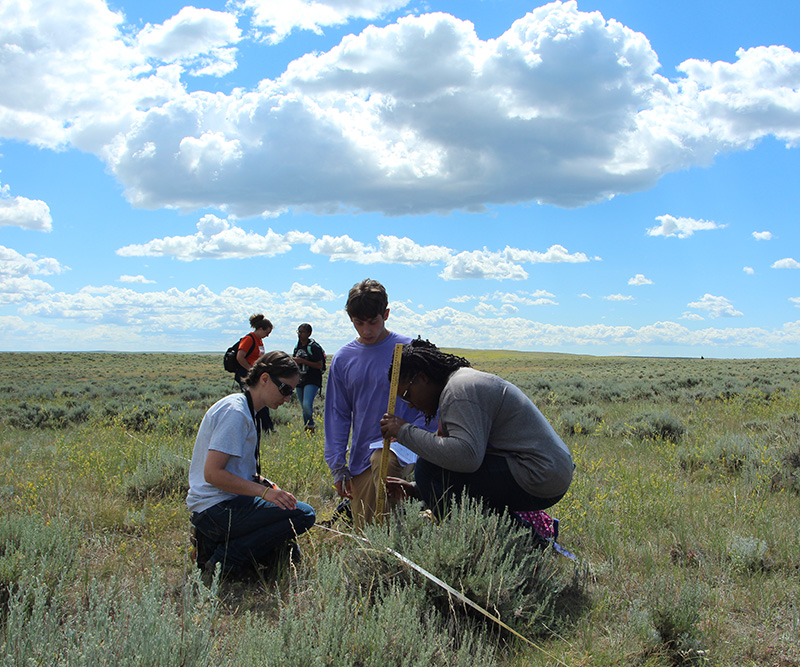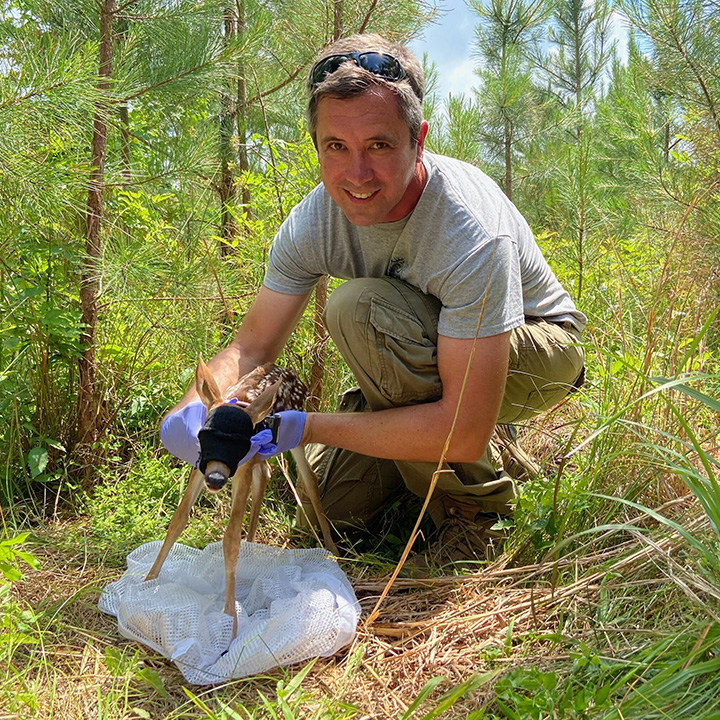Our Mission
Founded by Teddy Roosevelt in 1887, the Boone and Crockett Club has been at the forefront of helping to establish sound wildlife conservation policy in the U.S., as well as promoting the conservation and management of wildlife, especially big game and its habitat, and hunting as a vital component of the North American Model of Wildlife Conservation.
One of Boone and Crockett’s most forward-looking initiatives is its University Programs established to attract the brightest students to top-notched universities to work with distinguished wildlife faculty.
Clemson University is building support for the only Boone and Crockett University Program in the southeastern US. Clemson was selected because of its strong regional and global reputation in teaching, research and outreach programs in wildlife management and conservation, and existing partnerships with the wildlife community.
In 2024, Dr. David Jachowski became Director of Clemson’s Boone and Crockett Program to steward the growth of the program and bring on our first group of Boone and Crockett Fellows.
As highlighted on the Giving tab, the ultimate goal of the Clemson Program is to gain enough support to hire a Distinguished Boone and Crockett Professor who will lead Clemson’s efforts to enhance management of game and other wildlife species on private lands in South Carolina and the Southeast.

Message From The Director
At the turn of the 20th century Teddy Roosevelt, in addition to creating the Boone and Crockett Club, drafted pioneering policies to protect wildlife from market hunting and overexploitation, created protected areas and set in motion a legacy of sustainable management of our natural resources. His vision is largely responsible for the remarkable progress in restoring many game species from the brink of extinction over the past century, but there is more work to do.
While many Americans associate wildlife with parks and other protected areas, the success we have achieved in restoring wildlife populations is largely due to efforts made on private lands. This is particularly the case in the southeastern US, where there is little public land, private lands have been at the center of restoring and sustaining wildlife. Working with private landowners requires students to not just be good wildlife biologists, but to understand social, economic and political realities landowners face when balancing the needs of their livelihood with the needs of wildlife. This reality is the motivation for our “Wildlife on Working Lands” Program. The primary goal of this program is to produce wildlife professionals that are uniquely equipped with a multi-disciplinary education in both agricultural production and natural resource management to address pressing issues facing the sustainability of both agricultural production and wildlife populations on private lands.
At the same time, in keeping with Roosevelt’s forward-thinking vision, I endeavor for our program to produce innovative ideas and the next generation of difference makers. We currently exist in what the United Nations has optimistically called the decade of Ecosystem Restoration, and I train students to challenge dogma, pioneer new ideas, and inspire change that results in restoration of wildlife beyond our current perceived limitations. We are training the knowledge brokers of the era of wildlife restoration. Importantly, my goal for the Clemson Boone and Crockett Program is to not just produce students who can conduct research and communicate science-based information, but advocate for and inspire policy changes that lead to tangible action on the ground to restore wildlife.


